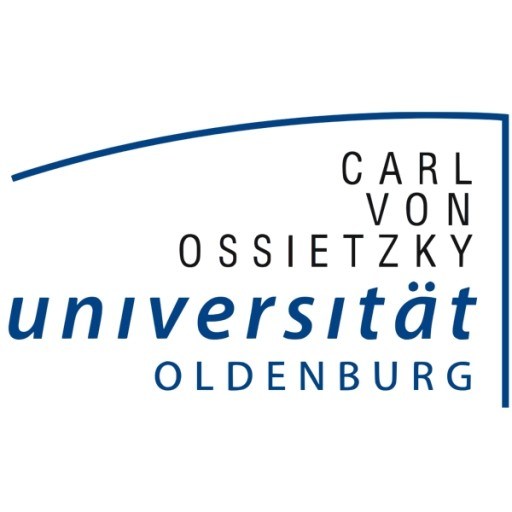Photos of university
The Engineering — Physics and Technology (Acoustics and Signal Processing) programme at the University of Southern Denmark offers students a comprehensive education in the fields of acoustics, signal processing, and applied physics. This interdisciplinary programme is designed to equip students with a solid foundation in physics principles, complemented by advanced skills in signal analysis, sound technologies, and audio engineering. Throughout the programme, students will explore the physics of sound and vibrations, learning how to model, analyze, and manipulate sound waves in various environments and applications. The curriculum includes coursework in acoustics, digital signal processing, sensor technology, and data analysis, providing students with both theoretical knowledge and practical skills needed for cutting-edge research and industry roles.
Students will have access to state-of-the-art laboratories and research facilities, where they can develop hands-on experience in sound measurement, noise control, audio signal filtering, and telecommunications technology. The program emphasizes a strong connection between theory and practical application, encouraging students to participate in projects, internships, and collaborations with industry partners. Graduates from this programme can pursue careers in diverse sectors such as audio technology, telecommunications, environmental noise assessment, biomedical acoustics, and audio equipment development. The educational approach aims to foster innovation, problem-solving abilities, and technical proficiency, preparing students for careers that demand both scientific understanding and engineering expertise.
The programme is suitable for students with a keen interest in the science of sound, signal processing, and their technological applications. It provides a pathway towards highly specialized roles in research and development, as well as opportunities for continuous learning in rapidly evolving fields. With a focus on both fundamental physics and applied engineering, students will graduate prepared to contribute to advancements in audio technology, acoustic design, and signal analysis, addressing real-world challenges across various industries. The University of Southern Denmark's Engineering — Physics and Technology (Acoustics and Signal Processing) programme thus offers a challenging, innovative, and globally relevant education for aspiring engineers and physicists dedicated to harnessing the power of sound and signals in technological solutions.
The Bachelor’s Programme in Engineering — Physics and Technology with a specialization in Acoustics and Signal Processing at the University of Southern Denmark offers students a comprehensive education in the fields of physics, engineering, and advanced signal processing techniques. This program is designed to provide students with a solid foundation in the fundamental principles of physics while simultaneously developing their skills in technology and instrumentation used to analyze and manipulate acoustic and signals. Throughout the course of study, students will engage in a combination of theoretical coursework, laboratory experiments, and project-based learning to acquire both practical and analytical competencies essential for modern engineering challenges.
The curriculum covers core areas such as classical and modern physics, mathematics, electronics, digital signal processing, acoustics, and data analysis. Students will learn about sound wave propagation, acoustic measurements, and the characteristics of various acoustic environments, preparing them for careers in industries like audio technology, telecommunications, environmental acoustics, and sound engineering. Emphasis is placed on the development of skills in signal analysis, filtering, and processing algorithms, which are crucial for applications ranging from noise reduction to sound quality optimization.
In addition to technical knowledge, the program fosters skills in problem-solving, project management, and teamwork through collaborative projects and hands-on experiments. Students also have opportunities to work on real-world challenges by collaborating with industry partners and participating in research projects. The coursework integrates modern software tools and programming languages, ensuring students are well-versed in the latest technology used in signal processing and acoustics.
Graduates of this program will be equipped to work in research and development departments, engineering consultancies, manufacturing industries, or pursue further education at the master's level. The program prepares students to be innovative engineers capable of designing and optimizing acoustic systems, improving sound quality, and developing new signal processing methods. With its interdisciplinary approach, the Bachelor’s Programme in Engineering — Physics and Technology with a specialization in Acoustics and Signal Processing aims to produce highly skilled professionals who can meet the demands of a rapidly evolving technological landscape.
The Bachelor’s program in Engineering — Physics and Technology with a specialization in Acoustics and Signal Processing at the University of Southern Denmark requires applicants to have completed secondary education comparable to Danish upper secondary school, with strong grades in mathematics, physics, and related sciences. Prospective students should demonstrate proficiency in English, typically through IELTS or TOEFL scores, ensuring they can follow technical lectures and participate actively in the coursework. The program demands a solid foundation in mathematical skills, including calculus, linear algebra, and differential equations, as these are essential for understanding signal processing algorithms and physics principles underlying acoustics. Physics courses at the high school level or equivalent are necessary to grasp the fundamental concepts involved in the program. Additionally, applicants should possess critical thinking and problem-solving skills, as the curriculum involves complex theoretical and practical assignments, laboratory work, and project development.
The admission process at the University of Southern Denmark evaluates academic performance, motivation, relevant experience, and language skills. Some applicants may be required to participate in an interview or submit additional documentation demonstrating their suitability for the program. The program is designed to prepare students for careers in acoustics, audio technology, environmental noise control, and signal processing applications across various industries, including telecommunications, multimedia, healthcare, and manufacturing. Interdisciplinary knowledge is emphasized, and students are encouraged to undertake internships, research projects, and collaborative work with industry partners. To successfully complete the program, students must pass a series of courses spanning physics, mathematics, engineering fundamentals, acoustics, and digital signal processing, along with a final project or thesis. Overall, the program combines theoretical coursework with practical application, ensuring graduates are well-equipped with the skills needed for advanced engineering roles in acoustics and signal processing fields.
The Engineering — Physics and Technology (Acoustics and Signal Processing) program at the University of Southern Denmark typically offers a range of financing options to support students throughout their studies. Tuition fees are charged for international students, while students within the European Union/European Economic Area usually benefit from reduced or no tuition fees due to Danish government regulation. The primary sources of funding for students include scholarships, student grants, and student loans.
Danish universities, including the University of Southern Denmark, participate in the Danish State Education Grant and Loan Scheme (SU), which provides financial support to eligible students from Denmark and the EU/EEA countries. This grant is intended to cover living expenses and tuition fees where applicable. To qualify, students must meet specific academic and residency requirements, including being enrolled full-time and pursuing an approved degree program.
In addition to government support, several external scholarships are available for international students, provided by various foundations and organizations dedicated to promoting higher education. These scholarships are often merit-based or need-based and can significantly assist with living costs, travel, and other expenses. The university also offers its own scholarship programs, aimed at attracting talented students from abroad and supporting their studies financially.
Students are encouraged to seek part-time employment opportunities in Denmark, which are permitted within certain weekly hours, to help supplement their income. Many students work in on-campus jobs or local businesses, balancing employment with their academic commitments. International students should also consider the costs associated with accommodation, insurance, transportation, and personal expenses when planning their budget.
Financing options may vary based on the country of origin and specific circumstances of the student, so prospective applicants are advised to consult the university’s official financial aid office or the Danish Agency for Higher Education and Science for the most current information. The university provides thorough guidance on the application process for scholarships and student loans, and prospective students are encouraged to apply early to maximize their financial support potential.
Overall, studying engineering in acoustics and signal processing at the University of Southern Denmark can be financially feasible through a combination of government grants, external scholarships, personal savings, and part-time work opportunities. Careful planning and early application for available funding sources are essential steps to ensuring a smooth and financially sustainable academic experience in Denmark.
The Engineering — Physics and Technology (Acoustics and Signal Processing) program at the University of Southern Denmark offers students a comprehensive education in the principles of physics with a focus on acoustics and signal processing technologies. This multidisciplinary program aims to develop students' skills in analyzing, designing, and applying acoustic and signal processing systems across various industries. Students will learn about sound wave propagation, audio signal analysis, noise control, digital signal processing, and the design of electronic systems for audio and acoustic applications. The curriculum combines theoretical coursework with practical projects, encouraging hands-on experience in laboratory settings and collaborative research activities.
Throughout the program, students are introduced to advanced mathematical techniques essential for modeling acoustic phenomena and processing signals. They gain competencies in programming and using specialized software tools for data analysis and system design. The program also emphasizes the importance of teamwork and communication skills, preparing graduates for careers in research and development, product design, quality control, or consultancy within sectors such as consumer electronics, automotive industries, telecommunications, and environmental acoustics.
Students benefit from close interaction with faculty members who are experts in acoustics, signal processing, and related fields, and often have opportunities for internships with industry partners or research projects at the university. The program prepares students for further specialization through master's studies or directly entering the job market with a solid foundation in both the physical principles and technological applications of acoustics and signal processing. With a strong emphasis on innovation and practical problem solving, graduates are well-equipped to contribute to technological advancements and improve acoustic systems and signal analysis techniques across various domains.









